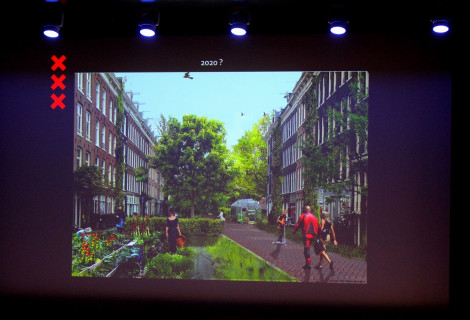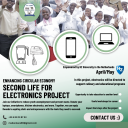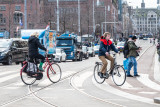Climate change, air pollution and lack of space - issues to a lot of cities. Is the solution to become car-free? The third day of the urban festival WeMakeThe.City festival saw experts from industry, academia and government come together to discuss the future of urban mobility during the “Autoluwe Stad” conference. Read the report, written by Ellie Roy.
Rethinking the role of cars
Rogier Elshout, moderator of the conference, started by asking the audience: “What should the city of Amsterdam aim to achieve by 2040? Should the city become emission-free, completely car-free or should the government just leave things as they are?” The audience clearly favoured a city in which pollution was avoided and the role of cars reduced. Like many other cities worldwide, Amsterdam has already set a concrete goal for the future: by 2030 the city will be emission-free for all forms of transportation. In order to make this happen, sustainable alternatives to the car need to play a larger role.
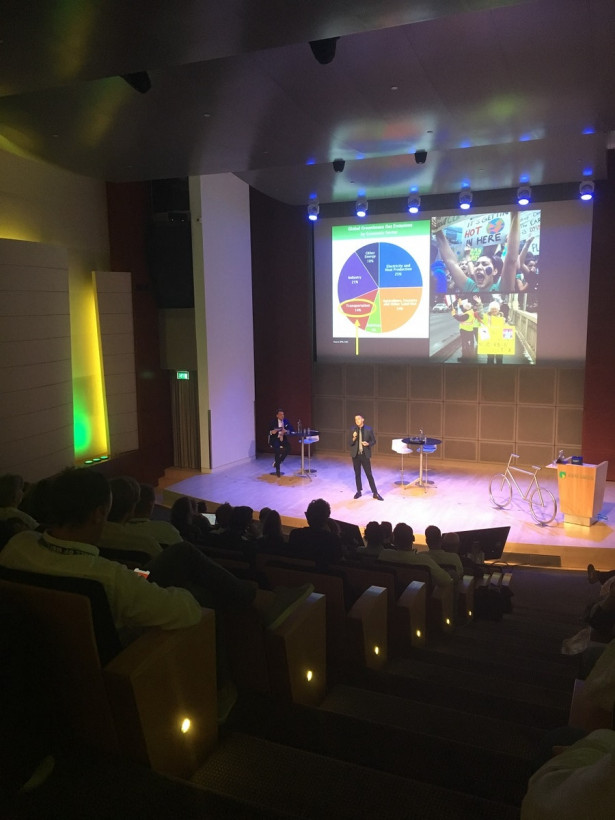
For the last decades cities, including Amsterdam, have focused on a car-centred design. Max Hirsh, research professor at the University of Hong Kong, explained how this poses a challenge: “For many people not having a car would lead to a reduction in quality of life. This issue is particularly relevant for those living on the outskirts of the city where the public transport network is more limited. This results in a phenomenon referred to as the “last mile problem” - the challenge of connecting transportation hubs with people’s final destination. While this problem persists, cars will remain the dominant mode of transportation.”
For improvements to be made, Max believes that the relationship between the car and the city needs to be reconsidered fundamentally. In order to do this “we need to start by looking at people’s desires and needs - rather than telling people how they should live. We should look at how they are living and ask them if they necessarily need a car to achieve these different tasks.” In his opinion, providing cheaper and more convenient alternatives is the solution to changing people’s behaviour. Innovations in e-commerce and logistics could play an important role. For instance, home delivery services and airport luggage collection would provide people with an alternative to transporting heavy items themselves, therefore reducing the reliance on the car.
Making car-free make sense
The City of Amsterdam is already taking steps towards reducing car dependence by investigating and implementing cleaner and smarter mobility options. Sharon Dijksma, Deputy Mayor for Traffic, Transport, Water and Air Quality, explained the city’s plans for the coming years. “We want more space and better air quality, therefore it is necessary to reduce the space for cars in the city in favour of cyclists, pedestrians and other modes of transport. In order to achieve this, a variety of new concepts are being tested. For example, in many neighbourhoods “eBuurthubs” will be developed together with residents. These are places where different types of sustainable mobility will be clustered, allowing alternatives to private car ownership (such as e-bikes and shared cars) to become more accessible.”
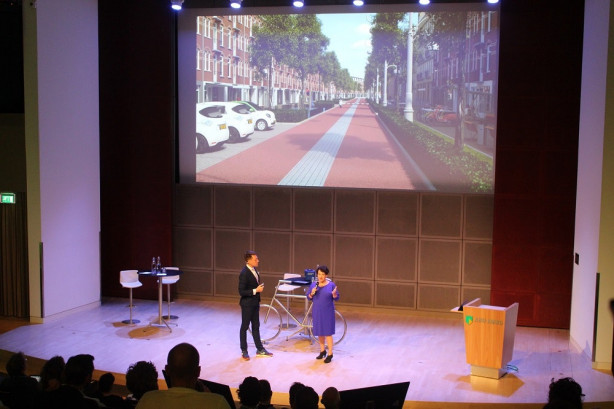
In addition, the city has conducted research into the feasibility of becoming less car dependent. A so-called “travel test” was conducted, in which 70 people handed in their car keys in exchange for a budget to spend on alternative modes of transport. Diederik Basta from Amsterdam’s CTO Office and Marije van Gent, researcher at the Hogeschool van Amsterdam, discussed the outcomes of this experiment. Diederik explained that one of the most surprising conclusions was that none of the participants finished the 500 euro budget. Furthermore, one third of the participants decided to give up their car after the experiment. Marije pointed out that most people participating in the study were already considering going car-free. However, the results illustrate that being less car dependent is definitely a feasible option.
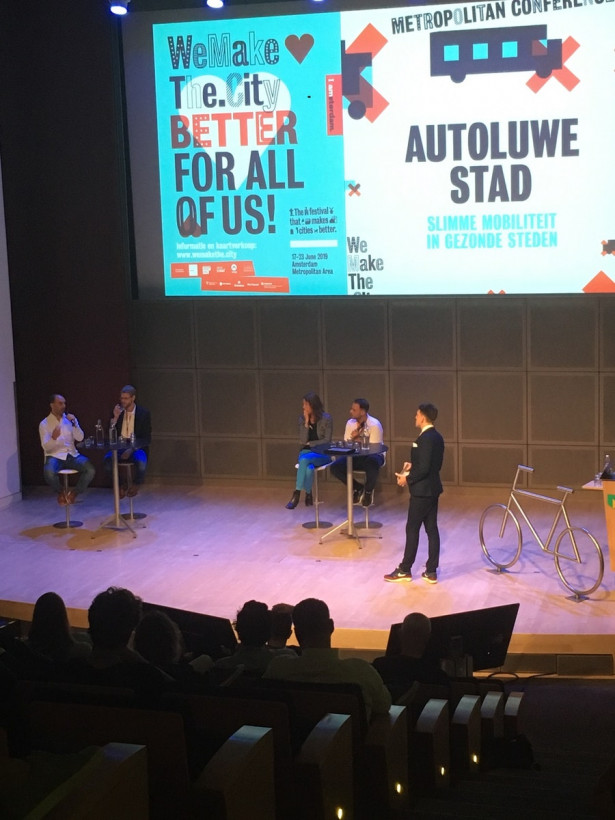
In many cities worldwide, Uber has become one of the companies helping to make car-free alternatives become more feasible. More than just a taxi company, Uber is expanding its services to include sustainable mobility options. Thijs Emondts, general manager of Uber Benelux, presented the company’s new vision. “Ultimately taxis and cars were just the start, the strategy is to become a platform for all forms of mobility”. Ride shares, e-bikes and public transport will all be incorporated into the platform. An entire journey could be made using one app, allowing sustainable alternatives to become easily accessible. This type of service could provide the city with many benefits. Sharon Dijksma was clear to emphasise the importance of policies to regulate new services, particularly in relation to data collection and privacy. “Anyone offering mobility services in the city also needs to be held accountable”.
Greener streets
Of all of the initiatives presented during the conference, one of the most striking was the redevelopment of the Frans Halsbuurt, initiated by residents of the neighbourhood. The Frans Halsbuurt is an area in Amsterdam characterised by narrow streets and many pedestrians and cyclists. Residents put pressure on the local municipality to remove all parking spaces and redesign the public space to create a better living environment. Peter Ulle, senior designer for the project, explained how collaboration with the residents was made a priority and used to establish the starting points for the design. A rough sketch of what the area might look like in 2020: an impressive vision of green public space. It made the audience wonder: is this what the car-free city will look like...?
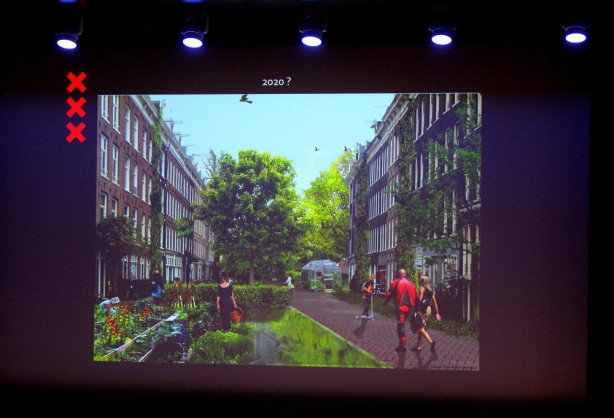
Text and photos: Ellie Roy
